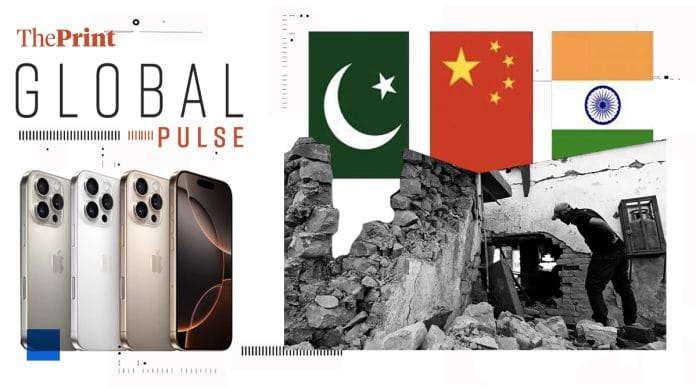New Delhi: China is walking a diplomatic tightrope—intensifying its relationship with Pakistan, while ensuring it does not push India “too far”. That’s why its officials are taking it easy, exercising restraint when it comes to the ostensible success of their defence systems in the India Pakistan face-off, report Cate Cadell and Karishma Mehrotra for The Washington Post.
“For China, India is a very important relationship, even though they’re competitors. It does not want to push India further into the US orbit,” Nishank Motwani, a senior fellow at the Australian Strategic Policy Institute, is quoted as saying.
The New York Times says that strategically, India does not benefit from engaging in further combat with Pakistan. The “aspiring diplomatic and economic power” is now, on the global playing field, at par with Pakistan. But the spectre of war still looms, write Mujib Mashal and Alex Travelli.
“Interviews with more than a dozen diplomats, analysts and officials paint a stark picture of India’s perpetual dilemma. After multiple wars and several failed attempts at solving their disputes, the problem has only grown in complexity,” reads the report.
Both countries are also left with limited options, given that both have “embraced religious nationalism”, it says.
With the dust yet to settle on the most recent episode of India-Pakistan tensions, another clash over Kashmir is inevitable, because the conflict-ridden state is a “lodestone in the grand strategy” of the Pakistan army, writes C. Christine Fair in Foreign Policy.
“Pakistan’s military hegemonizes the state’s politics and policies, commandeering resources for itself and its myriad personnel while the state remains dependent upon regular International Monetary Fund (IMF) bailouts and other forms of international assistance,” writes Fair, a professor at Georgetown University’s security studies programme. “Ideologically and materially, the Pakistani Army needs this conflict with India to survive. As the adage goes, while most countries have armies, in Pakistan, the army has a country.”
Another NYT report says the United Nations has called for an investigation of “credible reports” that India deported Rohingya refugees by pushing them off naval vessels into the open sea.
“The idea that Rohingya refugees have been cast into the sea from naval vessels is nothing short of outrageous,” Tom Andrews, special rapporteur on the situation of human rights in Myanmar, is quoted in the report as saying. “I am seeking further information and testimony regarding these developments and implore the Indian government to provide a full accounting of what happened.”
He also urged the Indian government to abstain from “inhumane and life-threatening treatment of Rohingya refugees, including their repatriation into perilous conditions in Myanmar”, the report says. The Indian government did not respond to NYT’s request for a comment.
Meanwhile, India’s dreams of becoming Apple’s global manufacturing hub might be impacted by US-China’s hashing out of a deal, which slices Chinese tariffs from 145 percent to 30 percent, reports Nikhil Inamdar for the BBC.
“As a result, there’s a chance manufacturing investment that was moving from China to India could either “stall” or “head back”, Ajay Srivastava of Delhi-based think tank, Global Trade Research Institute (GTRI) tells Inamdar. “India’s low-cost assembly lines may survive, but value-added growth is in danger.”
Although, in the long-run, there’s still a “strategic decoupling” taking place that will ultimately benefit India, the report adds.
(Edited by Mannat Chugh)
Also Read: Global media reports on why Trump should be cautious with ‘underlying affairs’ of India-Pakistan






